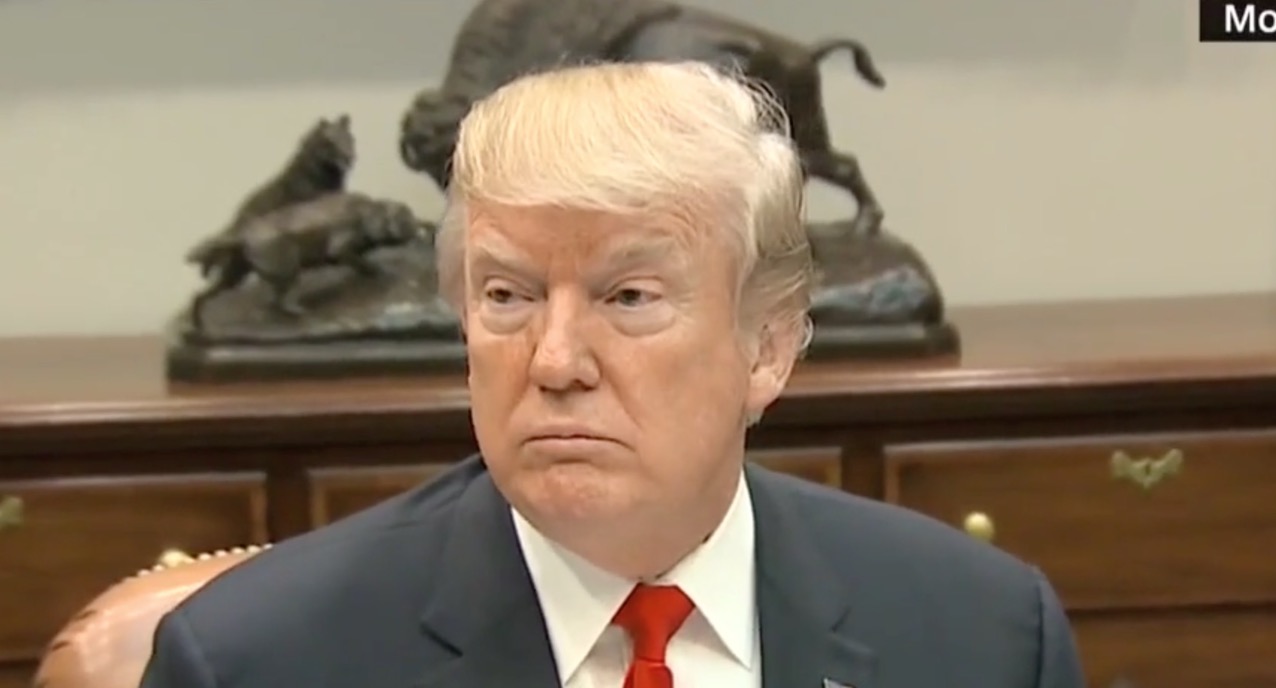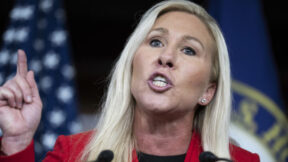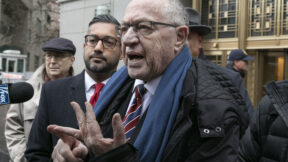5 Biggest Takeaways from WaPo’s Report on Trump Rejecting Evidence of Russian Interference

Washington Post has released an extensive profile on President Trump‘s repeated attempts to embrace Russia, and it reveals new details about how he seems determined to refuse any information that presents Russia as a national security threat.
Reporters spoke with 50 former and current officials with knowledge of how the Trump Administration handles policy with Moscow and ongoing developments from the investigations into Russian election-meddling. Trump regularly describes the idea of campaign collusion with Russia as a “witch hunt” created by his political opponents, yet WaPo‘s journalistic compilation shows that this mindset has had a significant impact into how the government has been conducting itself when it comes to Russia.
1. Admitting That the Kremlin Hacked the DNC Is a “Trap”
Trump appears to believe that his presidency is delegitimized by any validation of Russian efforts to swing the election in his favor. Even though his team’s presented Trump with options for acknowledging U.S. intelligence findings on the matter without diminishing himself, he insists that their analysis cannot be trusted. One prominent example of this was recorded when Trump reacted to evidence suggesting that Russian hackers were responsible for the Democratic National Committee email leak:
Told that members of his incoming Cabinet had already publicly backed the intelligence report on Russia, Trump shot back, “So what?” Admitting that the Kremlin had hacked Democratic Party emails, he said, was a “trap.”
As Trump addressed journalists on Jan. 11 in the lobby of Trump Tower, he came as close as he ever would to grudging acceptance. “As far as hacking, I think it was Russia,” he said, adding that “we also get hacked by other countries and other people.”
As hedged as those words were, Trump regretted them almost immediately. “It’s not me,” he said to aides afterward. “It wasn’t right.
2. Trump Has Never Held a Cabinet Meeting on Russia
The president’s refusal to accept evidence that Russia meddled with core American institutions has forced the administration to walk on eggshells whenever they address the national security connotations. Beyond cozying up to Vladimir Putin and refuting the notion of a Russian threat, Trump has never called a cabinet meeting on foreign election interference or what to do about it.
Trump has never convened a Cabinet-level meeting on Russian interference or what to do about it, administration officials said. Although the issue has been discussed at lower levels at the National Security Council, one former high-ranking Trump administration official said there is an unspoken understanding within the NSC that to raise the matter is to acknowledge its validity, which the president would see as an affront.
3. Daily Intel Updates Are Structured to Avoid Upsetting Trump
Trump has become so sensitive to information about Russia that his intel briefings are often constructed so he won’t react to them by getting upset. To this end, Trump’s National Security Council tries to avoid mentioning Russia in meetings, and whenever the subject comes up in the president’s personal briefings, it is included as a written statement that’s left out of the oral presentation.
U.S. officials declined to discuss whether the stream of recent intelligence on Russia has been shared with Trump. Current and former officials said that his daily intelligence update — known as the president’s daily brief, or PDB — is often structured to avoid upsetting him.
Russia-related intelligence that might draw Trump’s ire is in some cases included only in the written assessment and not raised orally, said a former senior intelligence official familiar with the matter. In other cases, Trump’s main briefer — a veteran CIA analyst — adjusts the order of his presentation and text, aiming to soften the impact.
“If you talk about Russia, meddling, interference — that takes the PDB off the rails,” said a second former senior U.S. intelligence official.
4. “Don’t Walk That Last 5½ Feet”
Due to various shakeups within the Administration, Trump has alternated between being surrounded by Russia skeptics like H.R. McMaster, and other confidants like Steve Bannon who positively reinforced his view on Russia. Both sides have fought with each other for months to gain influence over Trump’s political direction, and it seems Trump now prefers to let their squabbles continue so he doesn’t have to get involved with discussions among subordinates.
On sensitive matters related to Russia, senior advisers have at times adopted what one official described as a policy of “don’t walk that last 5½ feet” — meaning to avoid entering the Oval Office and giving Trump a chance to erupt or overrule on issues that can be resolved by subordinates.
5. Trump’s Preference for Authoritarians Over Traditional U.S. Allies
While Trump regularly offers positive remarks about Putin, his relationship with other world leaders and allied nations has been awkward to say the least. German Chancellor Angela Merkel visit to the White House months ago was an example of this, and Trump’s behavior suggests he’s not particularly invested in reinforcing that international bond and working out any disagreements.
His demeanor with the German leader was in striking contrast with his encounters with Putin and other authoritarian figures. “Who are the three guys in the world he most admires? President Xi [Jinping] of China, [Turkish President Recep Tayyip] Erdogan and Putin,” one Trump adviser said. “They’re all the same guy.”
Merkel has never fit into that Trump pantheon. Before her arrival, senior White House aides witnessed an odd scene that some saw as an omen for the visit. As McMaster and a dozen other top aides met with Trump in the Oval Office to outline issues Merkel was likely to raise, the president grew impatient, stood up and walked into an adjoining bathroom.
[Image via screengrab]
— —




